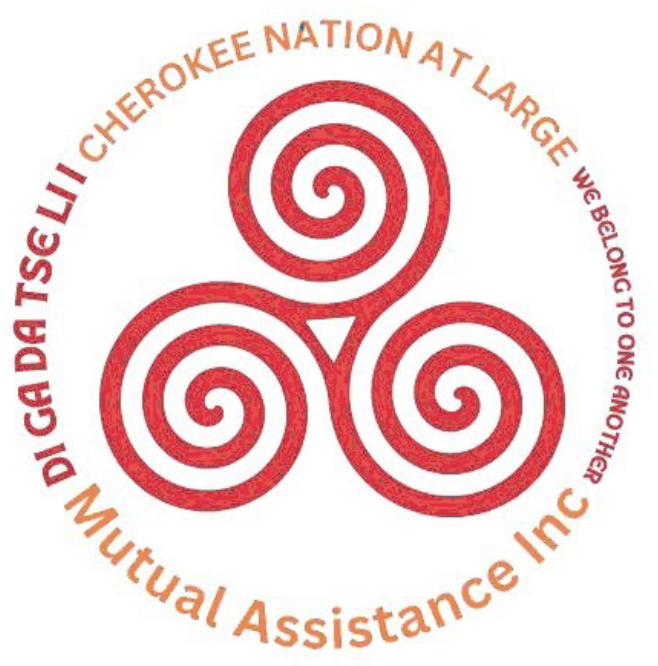Guest Opinion. Each holiday season as Cherokees gather with family and friends for Thanksgiving, Christmas and other observances, there is one enduring theme: Cherokees giving generously to others. This season, consider supporting the Cherokee Nation At-Large Mutual Assistance Inc (CNALMA) by sending a donation.

CNALMA is an independent non-profit that has a vital mission of service that is aligned with Cherokee Nation. CNALMA’s work, completely dependent on donations and volunteers, focuses on the needs of at-large citizens who have nowhere else to turn.
In their recent “At-Large Chat,” Cherokee Nation At-Large Councilors Johnny Jack Kidwell and Julia Coates described three important truths. First, Cherokee Nation provides more assistance to at-large citizens today than ever. Second, federal rules almost always prohibit Cherokee Nation from spending federal funds beyond our border, so we expand at-large services as our business profits increase. Third, when it comes to serving at-large citizens, there is more work to do and more opportunities to seize.

That third point is exactly why CNALMA’s success is so important to me as Principal Chief. As with any effort in support of the Cherokee people, the work involved can often be done by any of us, or at least those among us who are able to give in some way to the cause.
CNALMA’s mission is ambitious. Over 320,000 Cherokee Nation citizens live at-large and in all 50 states. It would be easy to look at that population and geography and simply say, “That is impossible.” What I admire about the CNALMA’s leadership is that even as they understand the “impossibility” of immediately serving every at-large citizen in need across the country, they had the courage to get started and take it a step at a time. That is a very Cherokee way of thinking.
The assistance provided by CNALMA, via an online application, is broad. As noted on its website, CNALMA services “cover emergency expenses for unanticipated events.” There are limits to how often assistance is available, as well as categories of need that cannot ordinarily be covered. CNALMA provides help in certain areas that, for low-income citizens living within the reservation, are often covered by our Human Services department which cannot service citizens outside our border.
CNALMA was founded just over a year ago, born of grassroots organizing in the Tulsa area and the advocacy of Councilor Kidwell. He made the case to Councilor Coates, Deputy Chief Bryan Warner and me that if at-large Cherokees were willing to organize to fill gaps in services to at-large citizens, that effort should have our support. Councilor Kidwell made wisdom of supporting the effort obvious to each of us.
CNALMA is governed by an all-volunteer and all-Cherokee Nation citizen board of directors. Board members Deborah Scott, Garry Martin and Brandon Scott have the full support and confidence of the at-large Councilors, Deputy Chief Warner and me. On any given day they take time from their busy schedules to keep the organization on track to help their fellow Cherokee in the spirit of Gadugi, the Cherokee word for “working together.”
On that basis, Cherokee Nation is providing crucial early support. To date, we have provided almost $75,000 in financial assistance as well as valuable in-kind help. Cherokee Nation’s new Gadugi Corps program provides a paid National Service Participant who serves as CNALMA’s sole staff member. We are exploring ways to provide more ongoing support.
That is where you come in. If you feel moved to help and you have the means to do so, I ask you to give. First Lady January and I are including CNALMA on our list of charities to support. If you can donate, in any amount, your support will help an organization that is lean and focused on helping those in need.
You can donate online today at CNALMA.org or mail a check to CNALMA, PO Box 883, Broken Arrow, OK 74013. If you need more information, explore CNALMA’s website, check them out on social media, call them at 918-605-6651 or email them at [email protected].
In the future, there will be more ways to help CNALMA, including through volunteerism. For example, I see a day in which Gadugi Corps dispatches members of its volunteer network to help with CNALMA on great projects. Last April CNALMA hosted a community event in the Tulsa metro area. I anticipate this will be an annual event and, if you are able, attending that event can be your way to show support and even get involved.
This season, in the spirit of Gadugi, give what you can to Cherokee Nation At-Large Mutual Assistance Inc.
Chuck Hoskin, Jr. is the principal chief of the Cherokee Nation.
More Stories Like This
Disrupting Poverty Through OpportunitySanctuary Cities Under Siege: When Federal Power Becomes a Weapon Against the People
Denmark's Genocidal Practices in Greenland
Cherokee Nation Stands Against Predatory Lending
Tribes Seek Better Data, Real Accountability in MMIP Cases Ahead of Tribal Consultation
Help us defend tribal sovereignty.
At Native News Online, our mission is rooted in telling the stories that strengthen sovereignty and uplift Indigenous voices — not just at year’s end, but every single day.
Because of your generosity last year, we were able to keep our reporters on the ground in tribal communities, at national gatherings and in the halls of Congress — covering the issues that matter most to Indian Country: sovereignty, culture, education, health and economic opportunity.
That support sustained us through a tough year in 2025. Now, as we look to the year ahead, we need your help right now to ensure warrior journalism remains strong — reporting that defends tribal sovereignty, amplifies Native truth, and holds power accountable.
 The stakes couldn't be higher. Your support keeps Native voices heard, Native stories told and Native sovereignty defended.
The stakes couldn't be higher. Your support keeps Native voices heard, Native stories told and Native sovereignty defended.
Stand with Warrior Journalism today.
Levi Rickert (Potawatomi), Editor & Publisher

